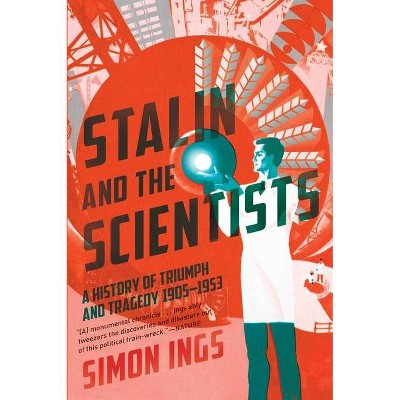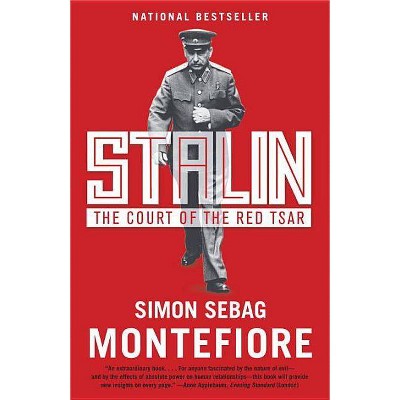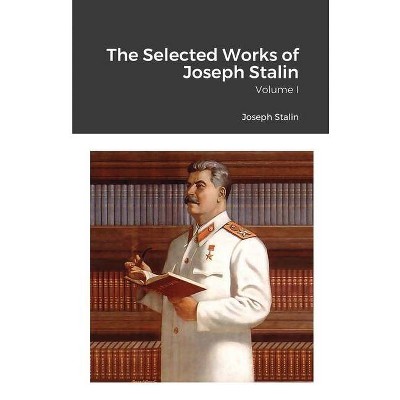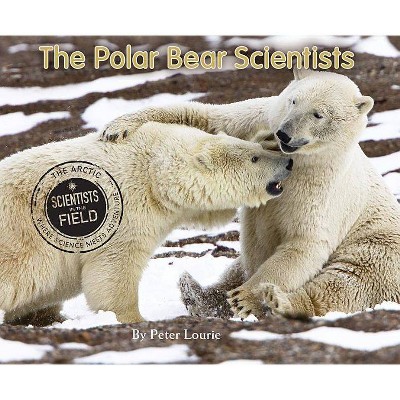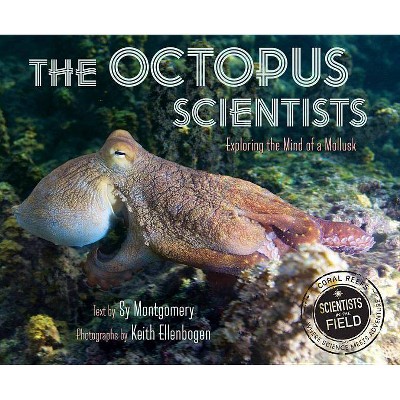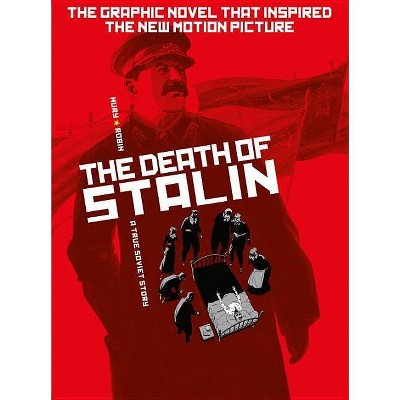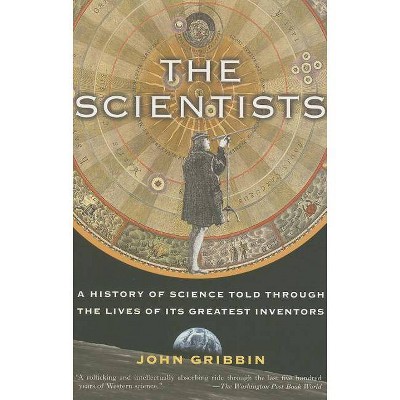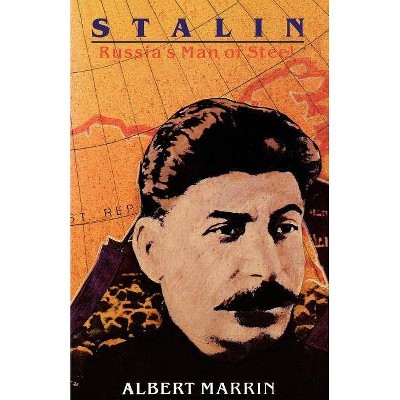Stalin and the Scientists - by Simon Ings (Paperback)
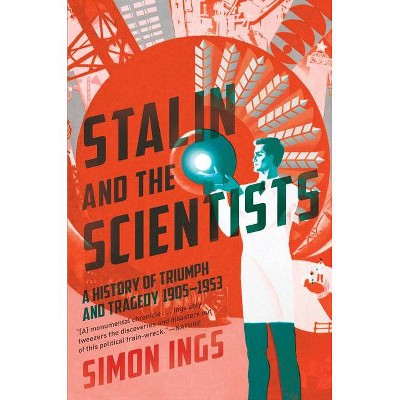
Similar Products
Products of same category from the store
AllProduct info
<p/><br></br><p><b> About the Book </b></p></br></br><b>An eye-opening history of science in the Soviet Union, following the scientists who survived Stalin's rule and helped to reshape the world</b><p/><br></br><p><b> Book Synopsis </b></p></br></br>Scientists throughout history, from Galileo to today's experts on climate change, have often had to contend with politics in their pursuit of knowledge. But in the Soviet Union, where the ruling elites embraced, patronized, and even fetishized science like never before, scientists lived their lives on a knife edge. The Soviet Union had the best-funded scientific establishment in history. Scientists were elevated as popular heroes and lavished with awards and privileges. But if their ideas or their field of study lost favor, they could be exiled, imprisoned, or murdered. And yet they persisted, making major contributions to twentieth-century science. <p/> <i>Stalin and the Scientists</i> tells the story of the hugely gifted scientists who worked in Russia from the years leading up to the Revolution through the death of the "Great Scientist" himself, Joseph Stalin. It weaves together the stories of scientists, politicians, and ideologues into an intimate and sometimes horrifying portrait of a state determined to remake the world. They often wreaked great harm. Stalin was himself an amateur botanist, and by falling under the sway of dangerous charlatans like Trofim Lysenko (who denied the existence of genes), and by relying on antiquated ideas of biology, he not only destroyed the lives of hundreds of brilliant scientists, he caused the death of millions through famine. <p/> But from atomic physics to management theory, and from radiation biology to neuroscience and psychology, these Soviet experts also discovered breakthroughs that forever changed agriculture, education, and medicine. A masterful book that deepens our understanding of Russian history, <i>Stalin and the Scientists</i> is a great achievement of research and storytelling, and a gripping look at what happens when science falls prey to politics.<p/><br></br><p><b> Review Quotes </b></p></br></br><br><b>Praise for <i>Stalin and the Scientists</i>: </b> <p/> <b>Longlisted for the 2016 Baillie Gifford Prize for Non-Fiction</b><br> <b><i>New York Times Book Review</i> Paperback Row Selection</b> <p/> "Ings's research is impressive and his exposition of the science is lucid . . . Filled with priceless nuggets and a cast of frauds, crackpots and tyrants, this is a lively and interesting book, and utterly relevant today."<b>--Simon Sebag Montefiore, <i>New York Times Book Review</i></b> <p/> "[Ings] is a gifted writer . . . A good single source for anyone approaching Soviet science for the first time . . . <i>Stalin and the Scientists</i> deserves attention . . . It is based on an impressive amount of study, and most readers will learn a great deal."<b>--Loren Graham, <i>Wall Street Journal</i></b> <p/> "Ings's finely crafted and informative book is a must read for understanding how the ideas of scientific knowledge and technology were distorted and subverted for decades across the Soviet Union, all in the service of the most ambitious experiment in social engineering the world has ever witnessed."<b>--<i>Washington Post</i></b> <p/> "[A] monumental chronicle . . . Ings ably tweezers the discoveries and disasters out of this political train-wreck."<b>--<i>Nature</i></b> <p/> "In <i>Stalin and the Scientists</i>, Simon Ings, culture editor at <i>New Scientist</i> (UK), very effectively relates a set of stories--compelling, often horrifying, sometimes both at once--of the most singular period in the history of Russian science."<b>--<i>American Scholar</i></b> <p/> "An engrossing and disturbing cautionary tale illustrating the dangers that arise when rigid state ideology collides with scientific reality."<b>--<i>Booklist</i></b> <p/> "[A] lively book . . . This is a fascinating story of brilliant scientists and charlatans, of visionaries and careerists, of civic courage and moral cowardice. The author explains the scientific issues in a clear and simple way, so the reader is aware of the issues at stake."<b>--<i>Guardian</i></b> <p/> "Endlessly entertaining . . . An amusing book . . . [Ings'] storytelling skill is everywhere evident; the book . . . is lively, dramatic, intriguing, and often very funny. Ings also has a wonderful ability to explain complex notions."<b>--<i>Times</i> (UK)</b> <p/> "Ings tells his story with vigour . . . The bewildering array of scientists, philosophers and politicians is matched by the impressive range of topics that Ings discusses."<b>--<i>New Statesman</i> (UK)</b> <p/> "An artful synthesis of basic science and political infighting."<b>--<i>Daily Telegraph</i> (UK)</b> <p/> "[Ings] has an eye for the interactions between the worlds of the laboratory, the print room and the corridors of power . . . <i>Stalin and the Scientists</i> is a fascinating read. Well researched and written in a lively and engaging style, it grips like a good novel would."<b>--<i>Sunday Business Post</i> (UK)</b> <p/> "A great book . . . A vast tapestry of Russian history from the mid-19th century . . . The great themes and contributions of Russian science . . . are illustrated with detailed examples, anecdotes and apt quotations."<b>--<i>Scotland on Sunday</i></b> <p/> "In <i>Stalin and the Scientists</i>, Simon Ings has produced one of the finest, most gripping surveys of the history of Russian science in the twentieth century. Deeply researched and written with a sense of burning importance, Ings' book ranges widely from politics to philosophy, from economics to biography to recount the monumental successes of Russian scientists and the Soviet State's Mephistophelean embrace of the scientific community. It is a fascinating work that both inspires and terrifies."<b>--Douglas Smith, author of <i>Former People: The Final Days of the Russian Aristocracy</i></b> <p/> "A dazzling, often astonishing prism through which to view the Soviet experiment"<b>--Peter Pomerantsev, author of <i>Nothing is True and Everything is Possible: The Surreal Heart of the New Russia</i></b><br><p/><br></br><p><b> About the Author </b></p></br></br><b>Simon Ings</b>, a science writer and novelist, is the author of <i>A Natural History of Seeing: The Art and Science of Vision</i>. He edits the culture section of <i>New Scientist</i> and regularly contributes to publications including the <i>Guardian</i>, <i>Times</i> (UK), <i>Telegraph</i>, <i>Independent</i> (UK), and <i>Nature</i>. He lives and works in London.
Price History
Price Archive shows prices from various stores, lets you see history and find the cheapest. There is no actual sale on the website. For all support, inquiry and suggestion messages communication@pricearchive.us
